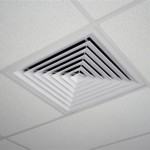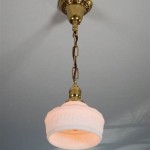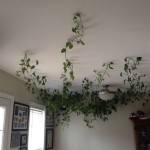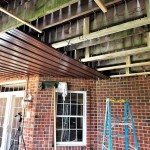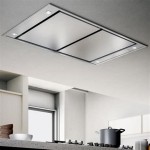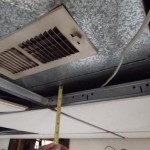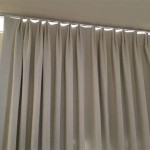Ways to Cover Popcorn Ceiling
Popcorn ceilings, with their textured, uneven surface, were a popular choice in homes built in the mid-20th century. However, over time, they have fallen out of favor due to their dated appearance and potential health concerns. The texture of popcorn ceilings can trap dust and allergens, making them difficult to clean and maintain. Additionally, some older popcorn ceilings may contain asbestos, a hazardous material. If you're looking to update your home's aesthetic and create a more modern, clean look, covering your popcorn ceiling is a worthwhile project.
Fortunately, there are several effective ways to cover a popcorn ceiling, each with its own advantages and considerations. This article explores some of the most popular methods, providing insights into their suitability for different situations and budgets.
1. Skim Coating
Skim coating is a popular and cost-effective method for covering popcorn ceilings. It involves applying a thin layer of drywall compound, known as joint compound, over the existing texture. This smooths out the surface, creating a blank canvas for painting or other decorative finishes. Skim coating requires some skill and patience, as it involves multiple layers of compound and careful sanding to achieve a smooth, seamless finish.
Here's a breakdown of the process:
- Preparation: Remove any loose or flaking popcorn ceiling material and thoroughly clean the surface. Patch any holes or cracks.
- Application: Apply a thin layer of joint compound with a broad knife, spreading it evenly over the ceiling. Allow the first coat to dry completely before applying subsequent coats.
- Sanding: Once the compound has dried, sand the surface to create a smooth, even finish. Use progressively finer grits of sandpaper for each sanding stage.
- Priming and Painting: After sanding, prime the ceiling to create a smooth surface for painting. Apply two coats of paint for optimal coverage and durability.
Skim coating is a labor-intensive process that requires time and effort. However, it offers a durable and versatile solution for covering popcorn ceilings.
2. Drywall Installation
For a completely new and smooth ceiling, installing new drywall is the most comprehensive solution. This method involves removing the existing popcorn ceiling and replacing it with drywall panels. It provides a completely flat and smooth surface, ideal for various decorative finishes, including paint, wallpaper, and even crown molding.
The process generally involves the following steps:
- Removing the Popcorn Ceiling: Carefully remove the popcorn ceiling using a scraper or a specialized tool. Take precautions to prevent dust and debris from spreading throughout the house.
- Framing: Install new framing boards to create a solid support structure for the drywall panels.
- Drywall Installation: Attach the drywall panels to the framing, ensuring that they are aligned and properly secured.
- Joint Taping: Apply joint tape to cover the seams between the drywall panels and use joint compound to create a smooth, seamless finish..
- Finishing and Painting: Once the joint compound is dry, sand the surface and apply a primer before painting or applying other decorative finishes.
Drywall installation is a more complex and time-consuming process compared to skim coating. However, it offers the most durable and versatile solution for covering popcorn ceilings, especially for homes undergoing a significant renovation.
3. Acoustic Ceiling Tiles
Acoustic ceiling tiles are a practical and budget-friendly option for covering popcorn ceilings, especially in rooms with high noise levels. The tiles come in various designs, colors, and materials, allowing for customization and aesthetic integration with the room's décor. These tiles have sound-absorbing properties, making them suitable for spaces like home theaters, studios, and offices.
Here's a step-by-step process for installing acoustic ceiling tiles:
- Preparation: Remove the existing popcorn ceiling. If necessary, install a new ceiling grid to support the tiles.
- Installation: Carefully align and install the acoustic ceiling tiles within the grid. Ensure that the tiles are properly secured and flush with the surrounding surface.
- Finishing: Once the tiles are installed, apply a final layer of caulk or sealant around the perimeter to ensure a clean and finished look.
Acoustic ceiling tiles offer a quick and easy way to cover popcorn ceilings while also improving noise control in the space.

How To Cover A Popcorn Ceiling With Shiplap Sprucing Up Mamahood

Cover Popcorn Ceilings Armstrong Residential

How To Cover Popcorn Ceiling 8 Creative Ways Making Maanita

Decorative Ideas To Cover Popcorn Ceilings Artsy Rule

How To Cover Popcorn Ceilings A Turtle S Life For Me

The Best Way To Cover Popcorn Ceilings With Beadboard Shoe Makes New

Easily Cover Popcorn Ceilings With Shiplap

A Simple Beautiful Solution For Covering Up Popcorn Ceilings The Happy Housie

How To Cover Popcorn Ceilings With Armstrong Ceiling Planks And Easy Up System Organized Ish

How To Cover Up Those Popcorn Ceilings 2024 11 01 Walls
Related Posts

